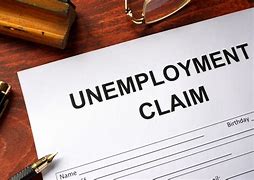
By Glory Oct, 22, 2020 Featured
New filings for unemployment claims dropped to 787,700,
last week, the lowest since March 14. Continuing claims also dropped more than
1 million.
According to a Dow Jones economists' survey, unemployment
claims for the week ending October 17 was expected to be 875,000. Thus, there
was a significant difference of 73,000 from the previous week which was
842,000.
The decline in weekly unemployment claims has shown
that there is progress, but the numbers still exceed the levels in previous
recessions and economic declines. While the numbers may have fallen by half,
people still receiving unemployment benefits in the U.S. are altogether more
than 23 million.
“Some recovery is better than no recovery, but we want
this to be stronger,” said Ernie Tedeschi, managing director and policy
economists at Evercore ISI. “It’s at risk of getting knocked off its slow
momentum if we get another shock, another wave of the virus.”
The last time weekly unemployment claims fell below
one million was on March 14 at 282,000, just before the wave of the coronavirus
hit the U.S., forcing millions of Americans into unemployment.
With a new stimulus package yet to be passed and a
coronavirus vaccine yet to be developed, millions of Americans are still out of
work. However, the dramatic drop in unemployment claims can be linked to the
migration of beneficiaries who have exhausted their regular benefits, to the
Pandemic Unemployment Assistance emergency compensation program.
The total number of recipients under the emergency
compensation program increased by 509,828 to 3.3 million, in the week that
ended October 3. Recipients will be given an extra 13 weeks of compensation
after they exhaust their benefits in the initial 26 weeks of eligibility.
There has also been progress in the decline of
continuing claims as the numbers dropped by 1.2 million from the previous two
weeks.
“We’re happy to see continuing claims fall, but the
decline – even allowing for the PEUC/extended benefits effect – does not map
one-to-one onto rising payrolls,” said Pantheon Macroeconomics’ chief economist
Ian Shepherdson. “Some people no longer claiming benefits may have dropped out
of the labor force, while some might have taken non-payroll gig or freelance
jobs. Moreover, continuing claims lag initial claims, so if initial claims
start rising again, continuing claims will follow.”
Chief U.S. financial economist at Oxford Economics said
the unemployment claims are still very high, and “the lack of continuing fiscal
aid for the unemployed is going to weigh on consumer attitudes and consumer
spending.” Adding that it is a painful reality for households that are
depending on the stimulus package.
Tags: Unemployment Claims Decline
Share On Facebook Twitter Linkedin Whatsapp Telegram
Categories
Latest Post
- Nigeria Taps Global Markets with $2.25B Eurobond Sale
- Boeing Shares Rise as CEO Confirms China Deliveries to Resume Next Month
- STOCK SPOTLIGHT: UNION HOMES REAL ESTATE INVESTMENT TRUST (UHREIT)
- Nvidia Q1 2025 Earnings Report Summary
- 📉 U.S. Market Summary – May 28, 2025
- CBN Launches New Financial Tools to Boost Nigeria’s Non-Interest Banking Sector! ✨
- Market Watch: Key Updates as Wall Street Awaits Nvidia and Salesforce Earnings
- U.S. Equity Markets Rally as EU Tariff Deadline Is Extended and Consumer Confidence Surges
- Things to Know Before the U.S. Stock Market Opens
- What to Expect in the Markets This Week (May 27–31)

Start investing with Acorns today! Get $5 when you use my invite link: Z24WWE
